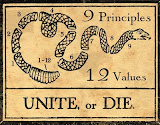Today is the LORD's day, and we are supposed to take the day off to honor Him and be grateful for all He has done. I am so very grateful, so why can't I rest?
My mind is too busy, and it is not fixed on Him. It must be. That is the only explanation I am able to find. That is, if I desire to be honest with myself.
Does anyone have any books or posts on the importance of resting on the Sabbath? I have found one (of many) that may answer my question. I shall share it with anyone else who has ever struggled with this same issue:
The Meaning of the Sabbath (Exodus 20:8-11)Source: www.Bible.org.
By: Bob Deffinbaugh, Th.M. (Bio)
Introduction.
As I sat at breakfast with a friend this week, discussing this message, I told Don that I could not conceive of a way to teach on the Sabbath in less than two lessons. He confessed to me that he was wondering how I would “fill up” one message with the subject. The reason why so much time is required is that there are so many other texts in the Scripture which deal with the Sabbath. To illustrate how much material there is to cover beyond the Old Testament texts, in one of the books recently published on the Sabbath [243] the one chapter dealing with the Sabbath in the Old Testament has about 20 pages, including numerous footnotes. There are ten additional chapters, containing over 350 additional pages. Thus, if we are to understand the Sabbath, we must consider more than its Old Testament texts. If you look up the terms “Sabbath,” “Sabbaths,” and “rest” in a concordance you will find the reason for a more extended study of this subject.
There is another reason why the Sabbath is a subject worthy of our thorough investigation: the Sabbath is one of the most important commandments of the ten. It is a part of those commandments related to our relationship with and our worship of God. It is also the commandment chosen to be the “sign” of the entire Mosaic Covenant (Exodus 31:13). A violation of this commandment is to result in the death penalty (Exodus 31:14).
Last, learning the meaning of the Sabbath will provide us with a most valuable lesson in how to study, interpret, and apply the Scriptures. The difference between education and indoctrination is the difference between a process and a product. Indoctrination gives you the product—what you should think—but it does not convey the process—how to think. Given this distinction, most sermons would have to be called indoctrination, not education. There is nothing intrinsically wrong with indoctrination, other than the fact that without education, those who are taught will always be dependent upon the teacher, who must tell them what to think.
In my sermons I have always sought to combine indoctrination and education. I attempt to communicate the process by which I have arrived at my product so that sooner or later you will discover, to your delight, that you have gained a fair bit of information, but that you have also learned how to study the Bible on your own. One of the greatest rewards I ever receive as a teacher is to see my listeners become students of the Word, so that they see for themselves whether or not my conclusions are rooted in the text of Scripture.
The most difficult portion of Scripture to study for most Christians is the Old Testament. Not only do we find the culture of the Ancient Near East foreign and the events unrelated to us, but when we do discover a biblical principle we are not sure that it applies to the New Testament saint, and if so, how.
The Fourth Commandment provides us with an excellent opportunity to sharpen our interpretive skills. The commandment is found early in the Pentateuch (the five books of the Bible written by Moses, the first five books of the Bible). Two related texts come before Exodus 20:8-11, but there are many Sabbath passages in the rest of the Old Testament and in the New. Because this passage comes so early in the Bible, we are able to learn how the later Old Testament writers interpreted and applied the Sabbath teaching of the Fourth Commandment. We then can turn to the New Testament, to see how the Pharisees misinterpreted and applied this commandment, and how our Lord corrected them. Finally, we can find the interpretation of the Sabbath as provided us by the teaching of the apostles and the Book of Hebrews. We have the privilege to look over the shoulder of the prophets, apostles, and even our Lord, to learn from them the way to interpret and apply the Old Testament Scriptures. This, my reader friend, is a rare privilege, which should make better Bible students of all of us.
And lest you think that all of my comments above are but a preparation for the study of an irrelevant text (where we learn a method, but get no message), I can assure you that the Fourth Commandment is related to more than the question of whether or not the State of Texas should repeal its “Blue Laws.” Surrounding the subject of the Sabbath are many differences of opinion, some of the strongest opinions are held by those who are Christians. There is one denomination (which some call a cult), the Seventh Day Adventists, who have chosen to hang their hat on this commandment as one of the touchstones of the faith. The principles we will discover from our study of the Sabbath will take us to where “the rubber meets the road.”
In this lesson, then, we will focus on the meaning of the Sabbath to the Old Testament saint. We will study the major Sabbath texts in the Law (the Pentateuch) and the Prophets (the rest of the Old Testament). We will then isolate several principles from these passages and explore their practical implications for each of us. In the next lesson we will turn to the New Testament, where we will first consider the twisted view of the Fourth Commandment held by the scribes and Pharisees, who were ready to stone our Lord as a Sabbath-breaker. We will consider our Lord’s defense of His actions and learn the correct interpretation and application of the Sabbath. Then, we will study the meaning of the Sabbath as taught by the apostles through their epistles. Finally we will attempt to determine the meaning and application of the Sabbath for the New Testament Christian. [Continue reading.]
That is just the introduction. These Pastors at Bible.org are amazing. Whenever I have a question, all I have to do is use their search. Now, let me tell ya, sometimes it does tricky! You will learn your way around if you just keep chosing different sections. Just like I keep doing. lol.
I've read up to the point where I copied it, so I know you won't mind if I excuse myself so that I may continue reading. I really need to know this so that my relationship with the LORD will deepen and grow. I Jesus so much. How could I say I have a relationship with Him if I do not understand Him? Thank you, and have a blessed night (and a great week).
I've trackbacked to my friends at Linkfest and other sites: Planck's Constant: Serenity Now, Blue Star Chronicles: McCarnival for McCain is Coming!, Blue Star Chronicles: Texas Woman Earns Silver Star in Global War on Terror, Debbie Lee on A NEWT ONE!: Gold Star Mom Debbie Lee Tonight, A Newt One: Patriotism: Do You Fit The Mold? UPDATED!!, Right Truth: A Victory Dance for Columbia (great article!), Stageleft: Open Trackback & Comments Sunday, Right Voice: Bad Plan: US Northern Command, Canada Command Establish New Bilateral Civil Assistance Plan, and The World According To Carl: Hillary Clinton: Pod Person?, thanks to Linkfest Haven Deluxe.
Posts that have trackbacked to this post:
1. Faultline USA: Obama Must Disavow His Dangerous Pastor and Racist.
2. Planck's Constant: Governor Schwarzenegger Vows to Terminate Court Ruling.
3. Beagle Scout: Eliot Spitzer, Public Moralist.
4. Right Truth: Plutonium dioxide shipment advertised, come and get it.
5. Wolf Pangloss: Tyrant Dreams.
6. Wolf Pangloss: Cycles on cycles to explain the Human-centric Theory of Global Warming.
7. Wolf Pangloss: McCain’s Character.
















No comments:
Post a Comment
Please be respectful of others, so they may be respectful to you. Have a blessed day.